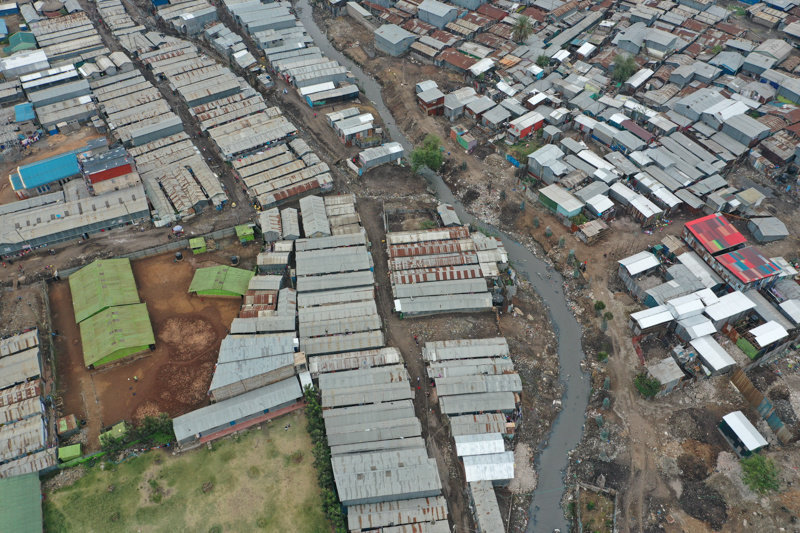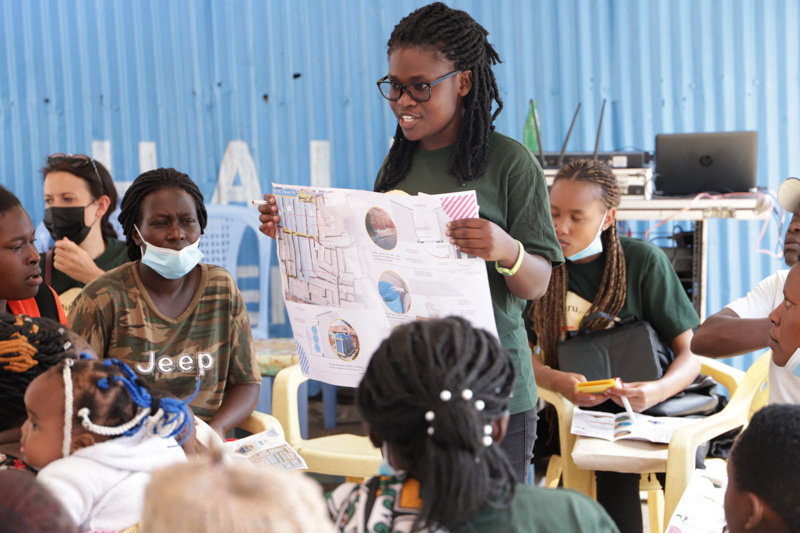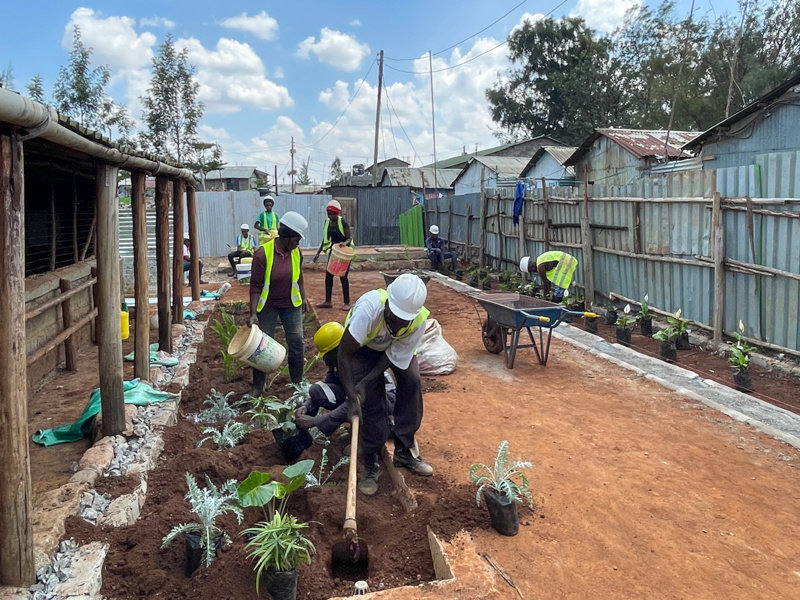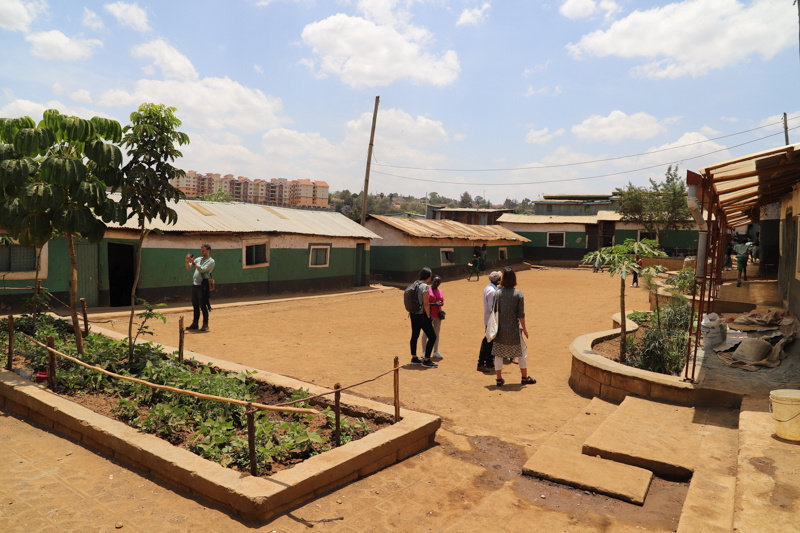Realising urban Nature-based Solutions (r u NbS) is a collaborative initiative led by KDI Kenya and supported by our partner the Centre for Community Initiatives (CCI) in Dar es Salaam, Tanzania. The project, funded by SwedBio, aims to build practical evidence for the uptake, efficiency, adaptability, and scalability of Nature-based Solutions (NbS) for water management in urban informal settlements in East Africa.Around this initiative we have set up a Regional Community of Practice for East Africa on NbS, urban green infrastructure, and ecosystem-based adaptation to support further collaboration and knowledge exchange across the region.



